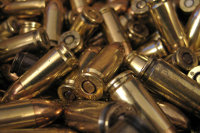 Even though gun possession is strictly controlled in the Netherlands, it seems criminals may still get their ammunition via largely legal channels.
Even though gun possession is strictly controlled in the Netherlands, it seems criminals may still get their ammunition via largely legal channels.
In 2012 Marsha de Vries of the University of Twente looked at how criminals procured ammunition in the Netherlands. She found that the police had no evidence that ammunition was smuggled into the country in recent years or that many bullets were stolen from gun dealers, the army and the police: “When a burglary does occur, as in 2009 at a gun shop and shooting club in Amsterdam, firearms are generally the intended target, with ammunition only a secondary consideration. The average arms dealer does not hold large stocks of ammunition.”
Sports shooters in the Netherlands need to be able to show a certificate of good conduct, amongst others, before they can get a gun permit, but beyond that point it is difficult to control what they do with their ammunition once purchased. Unlike the United Kingdom and Belgium, Germany and the Netherlands allow permit holders to buy any amount of ammunition they want. Dutch traders do not register who buys what and sports shooters can spread out their purchases across traders.
De Vries writes:
The storage of firearms and ammunition by individuals is checked by a special department of the Dutch regional police forces. [The] police may, only with the permission of the licensee, check certain specifically defined places in the home of the licensee, i.e. the place where the weapons safe is located. If a sports shooter, hunter or collector states that a verification is inconvenient, a new appointment has to be made, giving him the opportunity to conceal any criminal activity. […]
Experts within and outside the police presume that the illegal trade in ammunition is a highly lucrative criminal activity with high yields and low risks, especially for sports shooters. A sport shooter commented: “It is not difficult to pilfer 2000 cartridges a year”. Another respondent, a former police officer and sports shooter, estimated his potential success on the criminal path even higher, noting: “I could purchase 150,000 to 200,000 cartridges in a week”.
According to De Vries, a short-term solution for making access to ammunition harder would be to introduce an automated registration system for arms dealers.
(Photo by Joe Loong, some rights reserved)
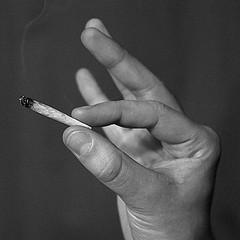 Last Wednesday a court in The Hague ordered the Dutch government to pay owners of marijuana bars (called coffeeshops in the Netherlands) the damages caused by the introduction of the so-called ‘weed pass’, NRC writes.
Last Wednesday a court in The Hague ordered the Dutch government to pay owners of marijuana bars (called coffeeshops in the Netherlands) the damages caused by the introduction of the so-called ‘weed pass’, NRC writes.
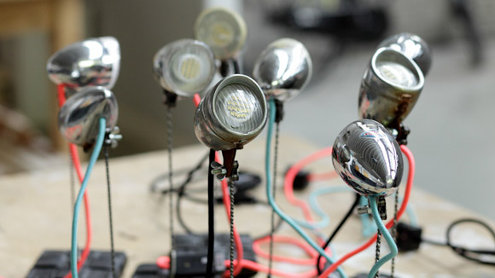
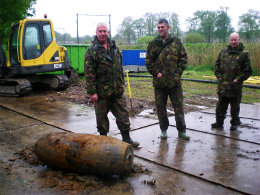 Tomorrow the Dutch army will detonate two World War II bombs on the site of the former army base in Blerick, just across the Meuse from Venlo.
Tomorrow the Dutch army will detonate two World War II bombs on the site of the former army base in Blerick, just across the Meuse from Venlo.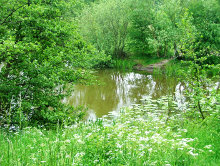 When the city of Den Bosch expanded eastward in the 1980s, it gobbled up an old stretch of Meuse dike called Heinis. Originally developers wanted to build a business park there, but protests put a stop to those plans.
When the city of Den Bosch expanded eastward in the 1980s, it gobbled up an old stretch of Meuse dike called Heinis. Originally developers wanted to build a business park there, but protests put a stop to those plans.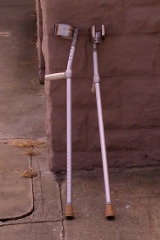 Yesterday the town of Westerlo in the Belgian province of Antwerp was the stage of the first-ever football match between the representative disabled teams of the Netherlands and the host country.
Yesterday the town of Westerlo in the Belgian province of Antwerp was the stage of the first-ever football match between the representative disabled teams of the Netherlands and the host country. Castelein, 1:53 into the video:
Castelein, 1:53 into the video:  Even though gun possession is strictly controlled in the Netherlands, it seems criminals may still get their ammunition via largely legal channels.
Even though gun possession is strictly controlled in the Netherlands, it seems criminals may still get their ammunition via largely legal channels.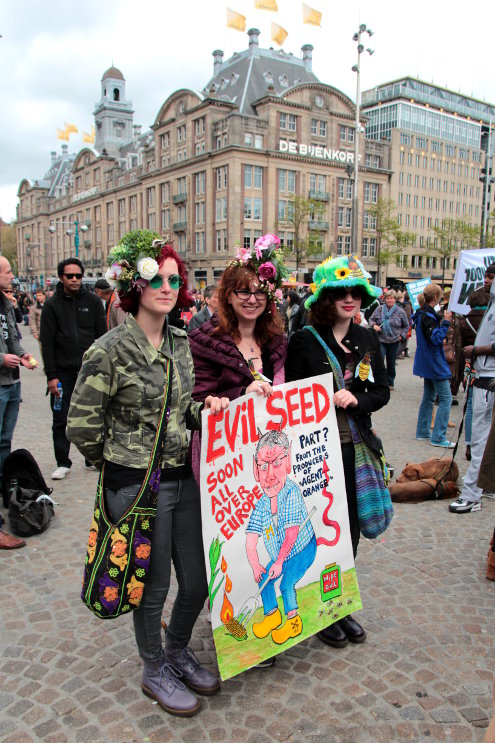
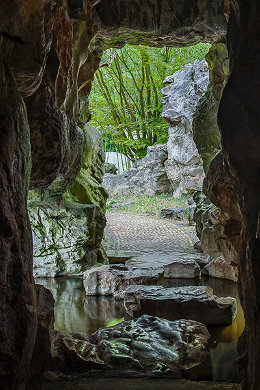 Jip Moors and his father Holly went to the volunteer-run botanical garden in Haren and asked each volunteer what their favourite spot was. This led to
Jip Moors and his father Holly went to the volunteer-run botanical garden in Haren and asked each volunteer what their favourite spot was. This led to  A Dutch company has started building a mobile phone that they say is made from conflict-free materials by well-paid workers while also addressing what happens once the phone has reached the end of its life.
A Dutch company has started building a mobile phone that they say is made from conflict-free materials by well-paid workers while also addressing what happens once the phone has reached the end of its life.